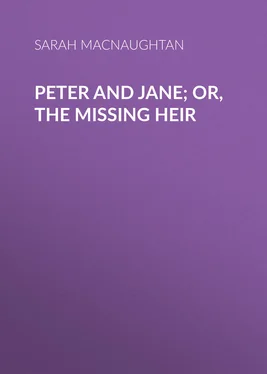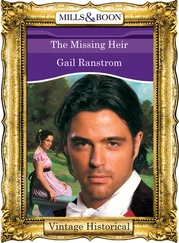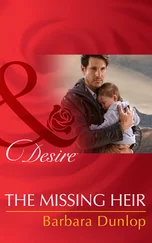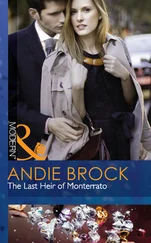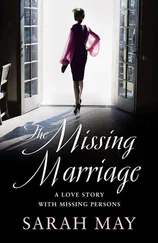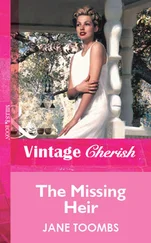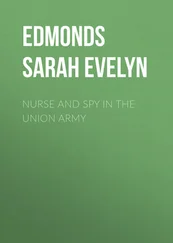Sarah Macnaughtan - Peter and Jane; Or, The Missing Heir
Здесь есть возможность читать онлайн «Sarah Macnaughtan - Peter and Jane; Or, The Missing Heir» — ознакомительный отрывок электронной книги совершенно бесплатно, а после прочтения отрывка купить полную версию. В некоторых случаях можно слушать аудио, скачать через торрент в формате fb2 и присутствует краткое содержание. Жанр: foreign_prose, foreign_antique, на английском языке. Описание произведения, (предисловие) а так же отзывы посетителей доступны на портале библиотеки ЛибКат.
- Название:Peter and Jane; Or, The Missing Heir
- Автор:
- Жанр:
- Год:неизвестен
- ISBN:нет данных
- Рейтинг книги:3 / 5. Голосов: 1
-
Избранное:Добавить в избранное
- Отзывы:
-
Ваша оценка:
- 60
- 1
- 2
- 3
- 4
- 5
Peter and Jane; Or, The Missing Heir: краткое содержание, описание и аннотация
Предлагаем к чтению аннотацию, описание, краткое содержание или предисловие (зависит от того, что написал сам автор книги «Peter and Jane; Or, The Missing Heir»). Если вы не нашли необходимую информацию о книге — напишите в комментариях, мы постараемся отыскать её.
Peter and Jane; Or, The Missing Heir — читать онлайн ознакомительный отрывок
Ниже представлен текст книги, разбитый по страницам. Система сохранения места последней прочитанной страницы, позволяет с удобством читать онлайн бесплатно книгу «Peter and Jane; Or, The Missing Heir», без необходимости каждый раз заново искать на чём Вы остановились. Поставьте закладку, и сможете в любой момент перейти на страницу, на которой закончили чтение.
Интервал:
Закладка:
The house and its gardens were open once a week to visitors, and the country neighbours brought their guests and strangers to see it, their pleasure in showing off Mrs. Ogilvie's possessions being somewhat tempered by timidity; while those who came to pay a call on the chance of finding her at home would sometimes say with an air of courage and independence to a friend, 'Mrs. Ogilvie is considered rather alarming, you know, but it really is only her manner.' She played her part as country neighbour conscientiously. Once a year she gave a sumptuous garden-party, all other garden-parties in the neighbourhood being dated by it. And when Peter was a little boy there were children asked to the house to play games with him, and later there were dances and balls.
Peter accepted his mother, his property, and his position on what he himself would probably have called their most cheery side. He valued Bowshott because there was excellent hunting to be got there; just as he loved his place in Scotland because of the stalking and the fishing and the shooting, but that they were magnificent or enviable never entered his head. Fate had dealt very kindly with him, and its kindliness had provoked a charming geniality in the character of the young man whom it had treated with such lavish good fortune. Taking it all round, Peter considered this world an excellent one, and most of the people in it very good sorts indeed. He accepted his mother as he accepted everything else, with a simple-heartedness which never looked below the surface nor concerned itself with motives; and if any one had suggested to him that she was inexplicable he would have considered such a judgment quite unintelligible. He enjoyed a visit to her more than almost anything else in the world. She had always been devoted to him ever since he was a boy, and for the life of him he could not see that she was difficult to understand.
It was the fashion to say that Mrs. Ogilvie had altered greatly since the death of Colonel Ogilvie and the little boy. People who remembered all the circumstances of that sad time thought always that in her own way Mrs. Ogilvie was the victim of remorse for not having loved her dead child better. But, after all, there was nothing that a child of three or four years old could have felt seriously in his mother's conduct, and his father's affection must have consoled him for any coldness on her part. After the colonel's death there were those who said it would have been better if Mrs. Ogilvie had married again, or even if she had had a daughter—some one who would have been always at home, and who, to use the common phrase, might have taken Mrs. Ogilvie out of herself. Peter was too much away from home to be a real companion to his mother, and there were never guests at Bowshott unless he was there. It would surely have been in reason if the widow had taken a fancy to some nice girl and had had her to live in the house. But Mrs. Ogilvie did not take fancies to nice girls. She loved Jane Erskine, but disguised the feeling under a sort of whimsical indifference. And the friendship seemed incongruous enough if one came to think of it. Jane, with her wholesome love of outdoor life, her fresh beauty, her heedlessness of learning and ignorance of books—what had Jane in common with Mrs. Ogilvie in her Parisian gowns and with her dyed hair, sitting in the vast drawing-room at Bowshott reading the Court Journal and thinking on the lines of the speculative philosophers?
And even to Jane Erskine her manner was cold. Her chilling philosophy would soon have quenched a less happy and impulsive nature. No one but Jane would have bothered her head about Mrs. Ogilvie, the kindly neighbours said, envying, nevertheless, the girl's intimacy at the great house. But as a matter of fact Jane expended a wealth of honest affection on Mrs. Ogilvie, and not only thought her the cleverest woman she had ever met, but had even been heard to affirm that her hair was not dyed. She called her 'such a really good sort'; and the words were as inappropriate as the words of Peter Ogilvie and Jane Erskine usually were.
CHAPTER II
Jane Erskine was at the present time at that interesting period when her friends and relatives, having just discovered the unexpected fact that she was grown up, subjected her to mildly severe criticism, while believing that to have reached womanhood at all showed a considerable amount of talent on her part. They were, they said, under no misapprehension about Jane; in moments of extreme candour, touched with responsibility, they had even been known to say that in one or two respects she was not absolutely perfect. Miss Abingdon, for instance, who always conscientiously encouraged these moods, and censured the General for spoiling Jane, would frequently compare her niece with herself, as she remembered that dim figure of girlhood, and never failed to find cause for unfavourable comparison between the two. From the portraits which she drew it was generally believed that Miss Abingdon must have been born rather a strait-laced spinster of thirty, and have increased in wisdom until her hair was touched with grey; when she would seem to have become the mellow, severe, dignified, loving, and critical lady who at this moment was looking out of her drawing-room window, and trying to show her impartiality for her orphan niece by subjecting her to lawful and unbiased criticism.
'The day of the incomprehensible woman is past and gone,' said Miss Abingdon, and she sighed a little.
Jane Erskine was painting a rabbit-hutch on the lawn. Her attitude showed the keen workman, but disguised the woman of grace. Miss Erskine, in fact, was lying full-length on the greensward of her aunt's lawn absorbed in the engrossing occupation of putting the right dabs of green paint upon a portion of the inside of the rabbit-hutch which was awkward to get at.
'They are all alike,' sighed Miss Abingdon. She alluded to the girlhood of the present day as it presented itself to her regretful and disapproving eye. 'They wear shoes two sizes too large for them, they don't require to be taken care of, they buy their own horses, and they are never ill. They call young men by their Christian names! I don't think they even have headaches.' Miss Abingdon sighed again over this lost art of womanhood. 'There is my niece Jane Erskine; she might be a graceful and elegant young woman, whereas she is sunburned, and—it is a dreadful word of course—but I can only call her leggy. Perhaps it is the fault of those narrow skirts. Women have never been so much respected since crinolines went out of fashion. I believe the independence of the modern girl is no longer assumed; it is not even a regrettable passing fashion; the time has come when I am afraid they really are independent. Jane would think me insane if I were to go out and sit with her in the garden when Peter comes to call, and I don't believe she has ever done a piece of fancy-work in her life!' said Miss Abingdon.
She looked round her pretty drawing-room in which, with a spinster's instinct for preserving old family treasures, she had gathered and garnered antique pieces of furniture, ill-drawn family portraits, and chairs covered with the worsted-work and beadwork of fifty or sixty years ago. She looked regretfully at the piano and the old, neatly bound folios of music with 'M. A.' upon the covers, and she wondered how it was that no one cared to hear her 'pieces' now. She went over to the music-stand and fingered them in a contemplative way. How industriously she used to practise 'Woodland Warblings,' 'My Pretty Bird,' 'La Sympathie, Valse Sentimentale pour le Piano,' and 'Quant' è piu bella,' fingered and arranged with variations.
On Sunday afternoons when her guests 'were having a look at the mokes' Miss Abingdon still played through her book of sacred pieces; and it was on Sunday afternoons, too, that she always stirred the jars of potpourri upon the cabinets, so that their pungent, faint odour might exhale through the room. The old pieces of music and the scent of the dried rose-leaves together always brought back to Miss Abingdon's mind fragrant memories of long ago.
Читать дальшеИнтервал:
Закладка:
Похожие книги на «Peter and Jane; Or, The Missing Heir»
Представляем Вашему вниманию похожие книги на «Peter and Jane; Or, The Missing Heir» списком для выбора. Мы отобрали схожую по названию и смыслу литературу в надежде предоставить читателям больше вариантов отыскать новые, интересные, ещё непрочитанные произведения.
Обсуждение, отзывы о книге «Peter and Jane; Or, The Missing Heir» и просто собственные мнения читателей. Оставьте ваши комментарии, напишите, что Вы думаете о произведении, его смысле или главных героях. Укажите что конкретно понравилось, а что нет, и почему Вы так считаете.
